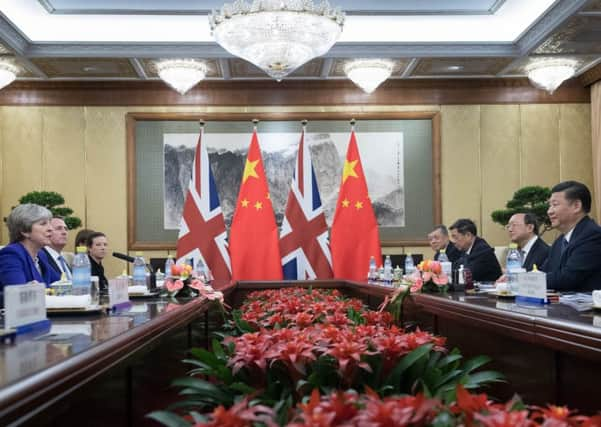Firms missing out on China trade


Anita Zhang founded Acolink in 2015 to create a one-stop shop for dealing with trade issues regarding the economic powerhouse.
Speaking to The Yorkshire Post, Ms Zhang said: “At the moment there are a lot of opportunities between the UK and China. I don’t think enough SMEs are realising it or knowing how to trade with China.”
Advertisement
Hide AdAdvertisement
Hide AdChina’s growing middle class presents an opportunity for British firms to tap into, Ms Zhang says, and one of the most in demand segments is fast moving consumer goods.
Businesses that do take the tentative steps in engaging in conversation with potential Chinese trading partners need to follow up and convert these discussions into sales.
Language barriers may sometimes get in the way, says Ms Zhang, leaving British traders optimistic of sales but no concrete guarantees of conversion.
“For example, interest may be shown in your product at a trade show and they are genuinely interested but you would need follow-up to understand what you can do to make them buy your product,” Ms Zhang said.
Advertisement
Hide AdAdvertisement
Hide AdUK firms also need to be cautious of the way they market their products in the Far East. There are stricter rules on advertising.
To describe your product as 100 per cent something, you have to have facts to back up those claims, Ms Zhang said.
“You can’t just use it as advertising or marketing language,” she added. China’s growing middle class presents a huge opportunity for UK businesses.
Ms Zhang said: “At the moment there is high demand for high quality, fast moving consumer goods. Things like baby and mum’s products, healthy food and cosmetics. They’re also looking for fashion and luxury products.
Advertisement
Hide AdAdvertisement
Hide Ad“This is because in China now you have an increasing middle class. You have a lot more disposable income to consume those kinds of products.”
However, there are many other countries that are vying for China’s attention, says Ms Zhang, a fact highlighted by recent trade visits by French, American and Canadians delegations.
The UK though still has a reputation for quality and British firms should continue to focus on this strength, Ms Zhang, who came here as a student in 2002, says. “First of all the UK has a long heritage of high quality products,” she said. “That is something it should continue producing.”
Ms Zhang added: “Another thing maybe should be emphasised more is young entrepreneurs. In China entrepreneurship and innovation is a big thing.
Advertisement
Hide AdAdvertisement
Hide Ad“If the UK and China can develop the dialogue between entrepreneurs that will also be something that is important in the future. That brings more dynamic to trade as well.”
The underlying message from Ms Zhang to UK businesses is “don’t wait” and start laying down the groundwork now.
Ms Zhang said: “You have to be fast. Don’t wait. If you explore that opportunity what could be the worst case scenario?
“You try and it didn’t work or you tried it this way and it didn’t work but let’s find a way it does work.”
‘Test product demand online’
Advertisement
Hide AdAdvertisement
Hide AdEcommerce could be a good way for SMEs in particular to test out demand for its products and services in the Chinese market.
Anita Zhang said: “By trying online you don’t have the high risk associated with trade and you can test the market.
“You can then get market feedback telling you whether this product will sell or not and how to adjust it or if the price point is right or not. Ecommerce is the easiest way for any brand to sell in a foreign market and I would recommend SMEs to start looking at this and use this as a route to test the market.”
Ms Zhang set up Acolink after realising that there were numerous hurdles businesses faced when looking to trade in China.